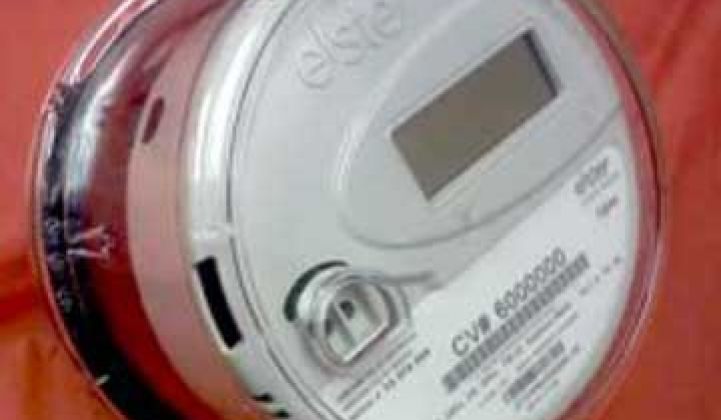Opt-out options for smart meters are popping up around the country, but they have all come with a cost for the customer -- until now.
The legislature in Vermont passed a bill that allows a customer to choose to not have a wireless smart meter, at no additional cost. If there is already a smart meter in place, the customer will not be charged to remove it.
The bill also had provisions for utilities to report the savings from smart meters in 2014 and again in 2016. The commissioners of health and public service will also have to put together a report on the health effects of smart meters by January 2012.
The state’s largest utility, Central Vermont Public Service, was going to charge $10 per month for customers to opt out. The legislation appears to strike down any fee at all for the foreseeable future. The bill awaits the governor’s signature.
Although there have been many news reports about opposition slowing smart meter rollouts, the amount of people who have actually rejected the meters has been small. In Pacific Gas & Electric’s territory, which had some of the most vocal opposition, less than 1 percent of people have opted out, which is far less than the utility had anticipated.
The number of consumers rejecting smart meters may be smaller than anticipated, but it has slowed -- though not totally stopped -- some smart meters from going into place. For many of the utilities that are considering smart meters, there have been lessons learned, such as the need for far more extensive customer education efforts.
A recent study found that Americans are willing to pay more for electricity if it means that it comes from cleaner sources, according to a study in Nature Climate Change. The researchers found that the average household would pay $162 more annually, or 13 percent, to support 80 percent clean energy (not including natural gas and nuclear) by 2035.
But for many utilities, holding off on the technology is related more to the upfront cost than it is to any public backlash. If smart meter plans are siloed, rather than being part of a more ambitious clean energy plan, it makes it harder for customers to understand why they are getting a rate increase for a technology that will ultimately save money.
In Maine, the first state to offer opt-outs, also has about 1 percent of customers that are choosing to opt out, although some are rethinking their decision once they see the monthly charge of about $12.
For the first time, there are also starting to be differentiated offerings for some customer with smart meters. The White House’s Green Button initiative allows for software developers to build apps to offer to customers whose utilities are using the Green Button, opening the door for much cooler applications than what the utility might have devised on its own.
With a control and cool factor coming to tens of millions of people who already have smart meters, opting out may become less appealing in coming years.



